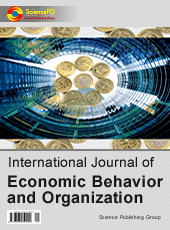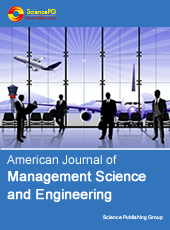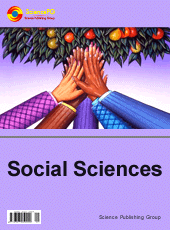- Important Dates
- Submission Deadline:
Extended to Jul. 9, 2024 - Conference Date: Aug. 10-12, 2024
- Publication:
- 7-10 days after the final edition
- Contact Information
- Email: huiyi123net_Aug@126.com
- Cell Phone: 0086-18616502321
- QQ: 2934920393
2024 9th International Conference on Economics, Management and Social Sciences (ICEMSS2024) is an optimal platform for academic communications, exchange of ideas and inspirations between specialists and scholars in the fields of Economics, Management and Social Sciences.
2024 9th International Conference on Economics, Management and Social Sciences (ICEMSS2024) will be held in Chengdu, China during Aug. 10-12, 2024. Chengdu, the capital of China's southwest Sichuan Province, is famed for being the home of cute giant pandas. Located in the west of Sichuan Basin and in the center of Chengdu Plain, the city covers a total area of 12.3 thousand square kilometres (4,749 square miles) with a population of over 11 million. It is now one of the most important economic, financial, commercial, cultural, transportation, and communication centers in Western China.
- Dr. Zhuming Chen Will Give a Speech in the ConferenceJul. 19, 2024
- Dr. Mohammad Ali Moradi Will Give a Speech in the ConferenceJul. 19, 2024
- The Abstract Submission Deadline Has Been Extended to July 9, 2024Jun. 26, 2024
- 2024 9th International Conference on Economics, Management and Social Sciences Call for PapersNov. 30, 2023
- ICEMSS2024 and ICEDUIT2024 were Held Successfully During Aug. 10-12, 2024 in Chengdu, ChinaAug. 20, 2024
2024 9th International Conference on Economics, Management and Social Sciences accepts abstract(s) submission. If the abstract is accepted, it will be included in the abstract book of 2024 9th International Conference on Economics, Management and Social Sciences published by Science Publishing Group.
2024 9th International Conference on Economics, Management and Social Sciences accepts original and unpublished papers. If full papers are accepted in the conference, they will be published online respectively in one of the following journals according to the themes. The publication date will be 7-10 days after the final edition.
-

International Journal of Economic Behavior and Organization ( IJEBO)
https://www.sciencepg.com/j/ijeboISSN Print: 2328-7608
ISSN Online: 2328-7616
-

American Journal of Management Science and Engineering ( AJMSE)
https://www.sciencepg.com/j/ajmseISSN Print: 2575-193X
ISSN Online: 2575-1379
-

International Journal of Economics, Finance and Management Sciences ( IJEFM)
https://www.sciencepg.com/j/ijefmISSN Print: 2326-9553
ISSN Online: 2326-9561
-

-

-

Science Innovation ( SI)
https://www.sciencepg.com/j/siISSN Print: 2328-7861
ISSN Online: 2328-787X
Guidelines for oral presenters:
Submit a full paper to make an oral presentation
Submit an abstract to make an oral presentation
Note: The full papers/abstracts that have been officially published can also be shared as oral presentations at the conference.
Authors can submit full papers/abstracts and make oral presentations. After the full paper/abstract is accepted, the organizing committee will send an invitation letter. Oral presenters need to get their speech well prepared (PowerPoint and audio or video materials if needed) about 2-3 weeks before the conference. The duration of the presentation is about 15 minutes (including 10 minutes for the presentation, 5 minutes for Q&A).
Guidelines for poster presenters:
Submit a full paper to make a poster presentation
Submit an abstract to make a poster presentation
Note: The full papers/abstracts that have been officially published can also be presented as posters at the conference.
Authors can submit full papers/abstracts and participate in poster presentations. After the full paper/abstract is accepted, the organizing committee will send an invitation letter. Poster presenters need to prepare a poster and submit it to the organizing committee (The poster template will be provided about 2-3 weeks before the conference).